- Home
- Rachel Caine
Prince of Shadows: A Novel of Romeo and Juliet Page 6
Prince of Shadows: A Novel of Romeo and Juliet Read online
Page 6
He crossed himself. Twice. “You cut me, dear signora. Yet I stand before you with the patience of a martyr, begging the gift of the presence of the lady—”
Friar Lawrence’s indignation was cut off by a wine-harshened, familiar voice. “Get out. You’re not needed here.” I risked a quick glance upward, toward the staircase, where Tybalt Capulet was charging down toward us. His face was flushed and livid, and his dark eyes sparked with rage. “Out, I say! If I need a lecture from the Church, we’ll get it from the cathedral, not from some threadbare friar! We’ve had thieves here, and worse; the last we need is you!”
Friar Lawrence straightened, and I remembered my submissive role just as Tybalt’s gaze sheared over me. “Thieves, you say? But this is proof! My vision showed me that the lady Rosaline needed counsel and guidance in this matter, the better to practice the holy virtues of forgiveness! Why, I felt the touch of the saints stirring me from my rest, kind sir, and one cannot argue with saints; I shall get no rest from them until I ease my mind that the lady is well and secure in her faith after such a shock.”
“Her family serves her well enough,” Tybalt replied, and I felt the prick of alarm at the wintry cast of his words. “Begone.”
“Tybalt!” The name was said in whip-crack command, and from the corner of my eye I saw him react sharply, turning toward the balcony overlooking the hall. Since his attention was elsewhere, I too risked a glance, and found Lady Capulet herself regarding us all with annoyance and distaste. “Such disrespect to the Church will not be tolerated. My sincerest apologies, brothers. You may address your concerns to me, and not my nephew.”
Friar Lawrence did not hesitate to exploit the opening. “I come in haste, afire with purpose sent from heaven,” he said. “I must urgently see the lady Rosaline on matters of a spiritual nature. I would of course be glad of your attendance, my lady Capulet.”
She hesitated for so long that I could feel the balance shifting beneath my unsteady feet, back toward Tybalt and his simmering violence, but then she gave one single, sharp nod. “Come with me.” Tybalt must have made to protest, because I heard her give an ice-cold hiss, and then say, “Nothing more from you this eve. Your uncle will hear of your misbehaviors. Your manners are no better than those of a drudge.”
In true noble fashion, she was less concerned with the state of her soul—or anyone’s—than with the appearance of rudeness to an institution more powerful on earth—never mind heaven—than the prince himself. Tybalt stood back to allow Friar Lawrence to ascend the steps, closely followed by me; I admit, I took some satisfaction in passing so near an enemy in perfect silence, hidden in plain sight. If only I’d been able to lift a trinket or two, the moment might have been perfection, but the risk was too great. Better to steal on the way out than the way in.
We followed the drifting skirts of Lady Capulet—attended now by a covey of ladies-in-waiting, including the sour-faced woman who’d first braced us—down the candlelit hall toward the room I knew to be Rosaline’s. She did not bother to announce herself. One of the servants opened the way, and the party swept like a storm inside.
I did not see Rosaline right away, only heard the intake of breath from Friar Lawrence. One of the ladies gave a faint cry—distressed, but hardly surprised.
I caught sight of Lady Capulet’s expression. It did not change by so much as a flicker.
I eased a few inches to the right, keeping my face as shadowed as possible as I risked a direct look at the scene ahead of us, and for a frozen moment all I could see was blood. Blood in drips and dribbles, staining the floor.
Rosaline was wedged into a cold corner, knees drawn up, nightgown bloodied from her split lip and the open cut on her forehead. It would take time for the bruises to form, but her left eye was already swollen, and the right side of her jaw distorted from the beating she’d received. She held her right arm tenderly, and I saw the bloody scrapes on her knuckles.
What sort of woman was she, to fight back? She’d lost, of course, and badly, but it was the sight of those wounded hands that made me feel as if I had lost my breath entire.
That, and the fact that she recognized me.
I saw her raise her head, and she met my gaze with her own, or at least half of it, and I saw the barely perceptible reaction that ran through her. There was an emotion there I could not fully understand—fear, of course; who would not be afraid? But something more.
I thought it might—impossibly—be gratitude.
“A fortunate thing that she is to be a bride of Christ,” her aunt said, “since His love transcends such earthly considerations as beauty. As you can see, the girl is inclined to be unbiddable at times, Friar.”
“Is such violent correction necessary?” he asked, and I heard a sharp edge to the question. “The girl is, after all, promised to the Church.”
“And it is our duty to ensure that she reflects well upon the house of Capulet,” her aunt said, with an imperious jut of her chin. She did not like being questioned so. “The scriptures tell us that a disobedient child should be corrected; is that not so? I thought you were summoned to tend to her spiritual needs, not her bodily ones.”
“Sometimes one entwines with the other,” Friar Lawrence said cheerfully, and moved forward to kneel next to the girl. He took the voluminous wool of his sleeve and wiped carefully at the cut on her head. “How fare you, my lady?”
“Well,” she whispered, and closed her eyes for a moment. “Well enough, I thank you.”
“Well enough to understand that you have been summoned to the glorious service of Our Lord?”
“At this hour?” Lady Capulet cut in, sharp as a blade. “Surely not. She’ll need at least a week to be presentable for the journey.”
Friar Lawrence stood, pulling himself to his full height, and bulk, with his hands folded in his bloodied sleeve. “A week, you say? To do God’s bidding?”
“God’s, or yours?” I risked a quick glance upward. Lady Capulet’s ale-colored eyes were far too sharp, her lips far too thin. She was suspicious of nature, and this miraculous visit had waked howls within her. It remained to be seen whether we would survive the Capulet hounds, if they had been set hard on the hunt. “I shall send to the abbess to confirm that this . . . vision of yours is inspired of God, and not from some lower place. You shall hear from me within the week. If your message proves true, you may have the honor of escorting the girl to the cloister. If not, you may be sure that we will speak to the bishop and request his instruction.” The bishop, of course, was a Capulet born. Friar Lawrence had placed himself squarely in danger for my sake, but looking at Rosaline—who had suffered for my sake, as well—I could see no alternative. Her life hung in the balance of Tybalt’s temper and her aunt’s indifference. I did not want to leave her here, risking more, but I caught a tiny movement from her. She had gently moved her scraped hand in a way that I knew was meant to warn me off.
So I bit my tongue hard enough to taste the metal of my blood, and kept my head bowed, my hands folded, as Friar Lawrence cooed his social graces to Lady Capulet, whose pursed mouth never loosened, and after exacting a promise that Rosaline’s wounds would be tended, he led me out and down the stairs.
Tybalt still lounged there, spineless as a cat, and we were forced to edge by him toward the landing. I passed close enough to smell Rosaline’s blood on him, and the heavy, angry stink of his sweat.
I felt a blind, red urge to let fly all the violence within me. My hand twisted and ached with the need to draw the concealed dagger at my waist and plunge it deep into his heart, but the cold, calm part of me reminded me that Rosaline Capulet was no kin of mine.
No kin and never kind, she’d said.
The taste in my mouth changed from blood to ashes as we left the Capulet house, and the doors slammed and bolted behind us.
I was suffocating in the folds of my disguise, and wished desperately to free myself of it, but Friar Lawrence’s hand closed hard on my arm as I tugged at the ropes holding it closed. “N
ot here,” he said. “You were right to fear for her, but with God’s grace we may have saved her life. Her lady aunt will not wish to have Rosaline murdered this night; they might be within their rights to so dispose of a rebellious girl-child, but they have not the liver for questions the Church might bring. She’s safe enough, for now. But our pressing concern must be intercepting the message she will send on to the abbess.”
“I will see to that,” I said. At least it was something to which my skills were well suited, unlike miming a biddable young postulant. “But what reply should we send in its place?”
“If you don’t wish to damage my newly minted reputation as a prophet, I would suggest it say that I am selected to be the one to escort the lady Rosaline to her joyous union with Christ. You might mention a saint and a vision or two, as well.”
I did not want Rosaline to be sent within the walls of a cloister, and I never to see her again, but perhaps it was the best for her; it was undoubtedly the safest. Here, in Verona, she risked her brother’s wrath, which might lead to worse than we’d seen tonight.
Jesu, I wanted him dead.
But I nodded beneath the suffocating weight of the robes, rounded my shoulders in submission I did not feel, and followed Friar Lawrence across the silent, dangerous city.
FROM THE PEN OF ROSALINE CAPULET, WRITTEN AND BURNED IN THE SAME NIGHT.
I have lied not only once, but many times now.
On the morning following the first visit from the strange and legendary Prince of Shadows, when he took my brother’s sword, I faced the question like all who slept beneath the Capulet roof: What did we know of the robber? There is secret power in being thought weak, and a fool, as women are so often seen; when I lied, I did so without a quiver, and no one looked more closely—save my wretched brother, who found the footprints below my balcony, and the broken flowers that showed someone had jumped there.
I had managed to convince him—or so I had thought—of my innocence then, and the punishment had been vicious, but brief.
Not so last evening, when the Prince arrived, silent as a black angel, and demanded the wretched verses I had already burned, as I will this account when I am done. I had already guessed his name, but the sight of his face, of the burning, foreign green eyes . . . of the teasing, testing look in them! I have always been practical, where my younger cousin Juliet dreams of amour; how then to explain the sudden rush of feeling to my skin, the blush in my cheek, the ice-cold fear that clutched me when I realized the risk he had taken in returning?
That last glance of Benvolio Montague had shown me too much of what feeling was within him, too. The stark, stunned horror told me that he’d seen my brother, Tybalt, come fast upon me, and that he knew what would come.
But what he could not know was how often it had come to this before. My brother was—in the parlance of our honey-mouthed aunt—of a high blood, and he often drew it from others—namely, from me. Of late I had begun to fight back, since I had come into a height where it was possible—though strictly forbidden—to do so. I had scored him with my nails more than once, and even bruised him, but never did I hurt him enough to matter.
I had thought, from the look on Benvolio’s face, that he might risk all to defend me, and it struck me with a deep horror, and also with a traitorous yearning. I had never known anyone to feel overmuch for me, since my father’s death. I had scarce known my mother. I had been exiled from our father’s home with Tybalt, passed from one uncaring set of hands to another until we had come to the chilly splendor of Verona, and this palace built of bones and memories.
I wished we had never come, and yet I am glad of it, because he came back. Benvolio Montague, wearing not his Prince of Shadows mask, but the robe of a postulant brother, trailing like a pet dog behind the sweaty bulk of Friar Lawrence (who is a kind man, for all his many faults). I know not what possessed the good friar to rush here to witness my shame, save that it must have been done at the urging of Benvolio.
I recognized him even before I spied out those cool green eyes within the hood’s shadow. I think now that I might well recognize him in any disguise he could attempt. And once again, I saw the dark, dangerous impulse in him to help me—an impulse that here in the heart of my violent and blood-soaked family could lead only to his painful death. Thank God and the Virgin that he left meekly, looking at least a little as a penitent young man should, though what might have passed between him and Tybalt, had things gone otherwise, does not bear thinking.
I write this by the well-banked light of a single candle, in haste, and the paper is smeared with my blood, for the cut in my forehead continues to seep despite the bandage provided by Juliet’s old nurse; I thank the saints that Juliet did not wake to see this.
I write the words because I know I can never speak them, for my own sake and for that of the Prince of Shadows.
But I feel no good can come of any of this, however delicious it may seem to keep such a secret.
And now I burn this paper, and hope—in pagan belief, perhaps—that somehow he will know.
QUARTO
2
Romeo and Mercutio were waiting for me in my room when I regained the safety of the Montague palace. Like Mercutio, I scaled the wall, which was a good deal easier for me than it had been for him, but I had practiced more, and with less wine in my belly. Still, it had been a long and exhausting evening, and I was well weary by the time I climbed over the sill and landed lightly on the carpets, not more than an arm’s length from where Mercutio had sprawled himself loosely in a chair, cradling a goblet that I suspected had been filled more than once. From the angle of it now, it was well emptied.
It took him at least two breaths to recognize that I was standing at his side. Once he did, he jerked himself upright, cup falling in haste, and threw his arms around me. “Fool!” he said, and roughly pushed me back to stare at my face. “Tybalt did not manage to puncture that wind-bladder you call a stomach, but I may. What manner of devil has gone into you, to do such things for a woman—worse, a Capulet?”
I looked past him to Romeo, who had also gotten to his feet, but somewhat more shyly. There was an uncomfortable light of hero worship in his face. “You survived it,” he said. “Twice you entered that cursed house, and escaped. You truly are blessed.”
“Lucky is not the same as blessed,” I said, and pushed Mercutio away as he opened his mouth to make some clever retort. “I’m not in the mood for games.” I sat in the chair he had leaped from, picked up the goblet, and held it out. My manservant, ever vigilant, filled it—but only halfway. I stared at him. He added a few more drops.
“Does she live?” Romeo asked anxiously. My cousin sank down on a stool near me, looking as earnest as an owl, if considerably less sharp-witted. “Rosaline? Is she—”
“She’s alive,” I said shortly, and quaffed my wine in a choking gulp. “Your poesy’s ashes and bad memories. We’ll consider this matter settled and done, and I swear to you, if I catch you spouting flowers at any other girl save the one your mother chooses—”
“But you must admit, coz, she is the fairest in all Verona, the sun to all the lesser moons. . . .”
I hit him. It came suddenly, in a rush of hot blood that brought me from the chair. Even before I knew what I planned, my fist was clenched and in motion, and the landed blow sent knives up my arm. I might have hit him again, save that Mercutio was on me, holding me back and wrestling me to the chair. My cousin was sprawled on the floor, blood crimson on his lip and fury shimmering in his dark eyes.
“This is your fault!” I shouted at him. “How great a fool are you, Romeo? I should—”
“Beat me bloody?” he demanded, and stood as he wiped the red from his mouth. That, more than Mercutio’s hold, sent a shiver through me as I remembered Rosaline’s split lip, her bloodied face, her desperately concerned gaze—concerned not for herself, but for me. “Love survives the scorn of others, coz. Even the blows of self-righteous relatives.”
“She doesn’t love you
!” I blurted out, and threw off my friend’s restraint to climb back to my feet. “Mark me, Romeo: Put yourself at risk again and I will do worse than beat you bloody.”
“Temper, temper, my hot blade,” Mercutio said, and patted me annoyingly on the back. “He’s a fool, yes, but an honest one. Romeo, tell your coz that you’ll forget the girl and let’s part friends for the night. I have a love of my own waiting for my tender attention, and beautiful as you both may be . . .”
He batted his eyelids in a way that made me think ridiculously of my sister, Veronica, and I could not help but smile, a bit. He sent me a saucy wink and a purse of his lips, and I shoved him off balance for reprisal. “I’m not meat for your table, Mercutio.”
“But you sauce up so well,” he said, and arched his brows in comical consideration. “Very well, I leave you to the warm fires of your familial love.”
We clapped hands. He offered the same to Romeo, and a quick embrace. “Safe home, my friend.”
“Safe,” he said, and jumped theatrically up to the windowsill to offer us both a sweeping bow. “But most certainly not to home.”
He spoiled his exit somewhat by nearly slipping as he began his descent down the wall. I watched him swarm down the stone—not quite as expertly as I, but competently—and then he was gone, a shadow in the shadows. Our lunatic friend, off on yet another risky venture.
Behind me, Romeo said, “He’ll be caught one day. You know that.” Romeo was not speaking of the dangerous wall climbing; we both knew that if Mercutio was caught at that he would talk his way out, and his madcap ways were well-known in Verona. No one would think much of it. Romeo was referring to the much deadlier rendezvous our friend was off to make.
We had known, since we were all young sprouts together, that Mercutio was made of fire and fey grace, but as we turned from boys to men expected to do the duty of our families, Romeo and I slowly realized that there was more to our friend than that. I had found it out by chance, walking in on Mercutio in close embrace with a pretty young man a bit older than either of us. I’d heard of such things, of course, but never seen, and I confess to a certain unsettled embarrassment that drove me from them—from Mercutio—for almost a week, before he came to see me and, with an entirely strange attitude of gravitas, asked what I intended to do. You hold our lives in your hands, he had told me. You know what they would do to us. I beg you to remember that whatever you think of me, whatever sins I may commit, I am always your friend.

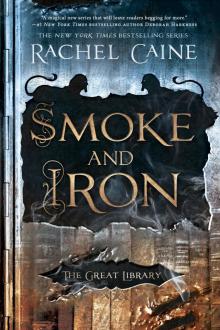 Smoke and Iron
Smoke and Iron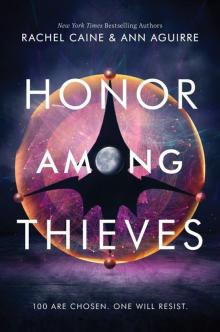 Honor Among Thieves
Honor Among Thieves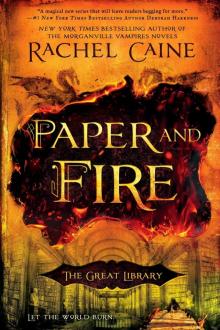 Paper and Fire
Paper and Fire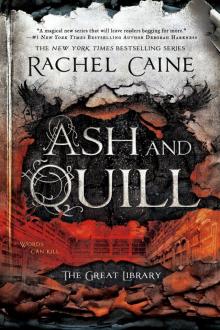 Ash and Quill
Ash and Quill Wolfhunter River (Stillhouse Lake Book 3)
Wolfhunter River (Stillhouse Lake Book 3)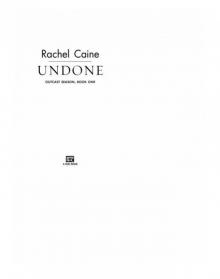 Undone
Undone Glass Houses
Glass Houses Prince of Shadows
Prince of Shadows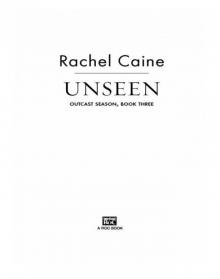 Unseen
Unseen Midnight at Mart's
Midnight at Mart's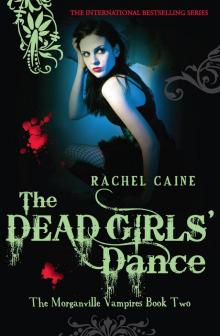 The Dead Girls Dance
The Dead Girls Dance Last Breath
Last Breath Stillhouse Lake
Stillhouse Lake Daylighters
Daylighters Midnight Alley
Midnight Alley Black Dawn
Black Dawn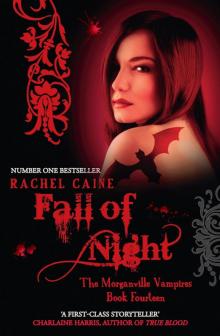 Fall of Night
Fall of Night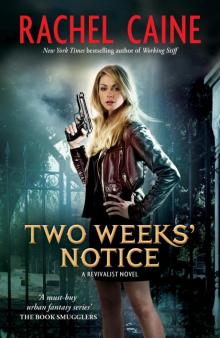 Two Weeks Notice
Two Weeks Notice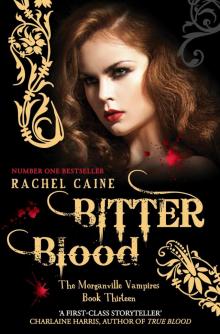 Bitter Blood
Bitter Blood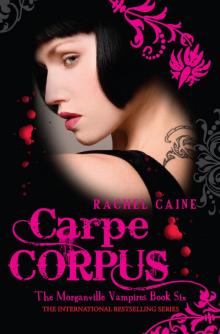 Carpe Corpus
Carpe Corpus Kiss of Death
Kiss of Death Ghost Town
Ghost Town Ill Wind
Ill Wind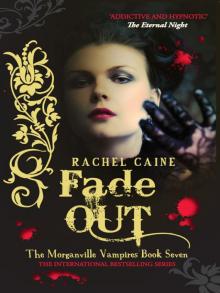 Fade Out
Fade Out Total Eclipse
Total Eclipse Honor Lost
Honor Lost Thin Air
Thin Air Black Corner
Black Corner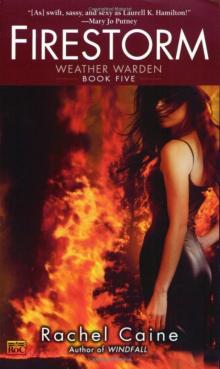 Firestorm
Firestorm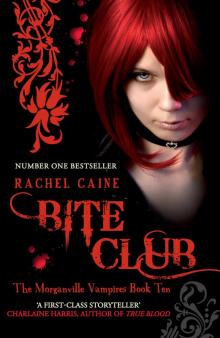 Bite Club
Bite Club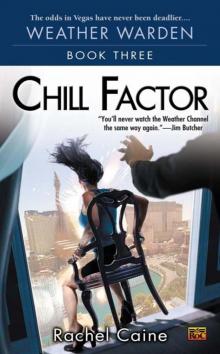 Chill Factor
Chill Factor Windfall
Windfall Oasis
Oasis Devils Bargain
Devils Bargain Terminated
Terminated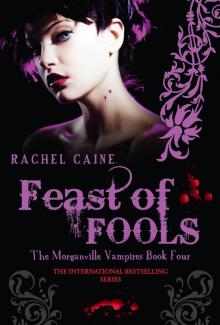 Feast of Fools
Feast of Fools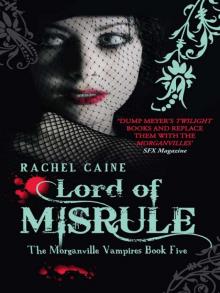 Lord of Misrule
Lord of Misrule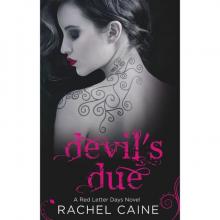 Devils Due
Devils Due Ladies' Night
Ladies' Night Gale Force
Gale Force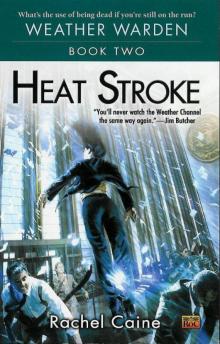 Heat Stroke
Heat Stroke Killman Creek
Killman Creek Sword and Pen
Sword and Pen Cape Storm
Cape Storm Unbroken
Unbroken Windfall tww-4
Windfall tww-4 Heartbreak Bay (Stillhouse Lake)
Heartbreak Bay (Stillhouse Lake) Daylighters: The Morganville Vampires
Daylighters: The Morganville Vampires Duty
Duty Honor Bound
Honor Bound Unseen os-3
Unseen os-3 Firestorm tww-5
Firestorm tww-5 Blue Crush
Blue Crush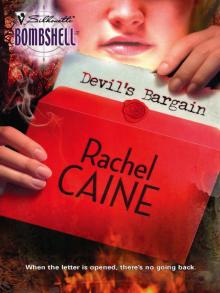 Devil s Bargain
Devil s Bargain Prince of Shadows: A Novel of Romeo and Juliet
Prince of Shadows: A Novel of Romeo and Juliet Bite Club mv-10
Bite Club mv-10 Terminated tr-3
Terminated tr-3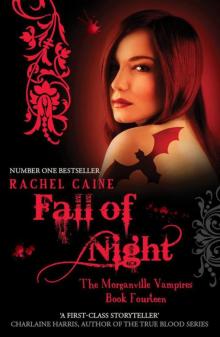 The Morganville Vampires 14 - Fall of Night
The Morganville Vampires 14 - Fall of Night Bitter Blood tmv-13
Bitter Blood tmv-13 Falling for Grace
Falling for Grace The True Blood of Martyrs
The True Blood of Martyrs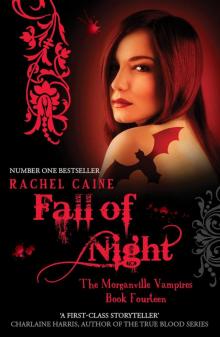 Fall of Night (The Morganville Vampires)
Fall of Night (The Morganville Vampires) Devil's Bargain rld-1
Devil's Bargain rld-1 The Morganville Vampires (Books 1-8)
The Morganville Vampires (Books 1-8)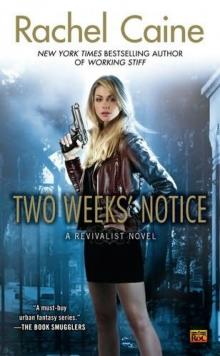 Two Weeks' Notice tr-2
Two Weeks' Notice tr-2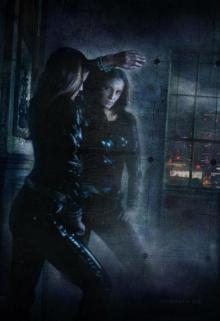 An Affinity for Blue
An Affinity for Blue Caine, Rachel-Short Stories
Caine, Rachel-Short Stories Kiss of Death tmv-8
Kiss of Death tmv-8 WITCHGRAVE
WITCHGRAVE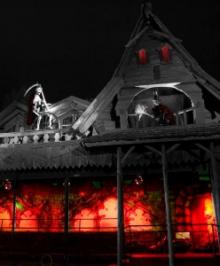 Dark Rides
Dark Rides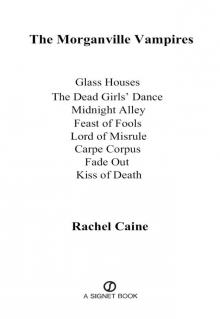 The Morganville Vampires
The Morganville Vampires Killman Creek (Stillhouse Lake Series Book 2)
Killman Creek (Stillhouse Lake Series Book 2) Midnight Bites
Midnight Bites Line of Sight
Line of Sight![Morganville Vampires [01] Glass Houses Read online](http://i1.bookreadfree.com/i1/03/30/morganville_vampires_01_glass_houses_preview.jpg) Morganville Vampires [01] Glass Houses
Morganville Vampires [01] Glass Houses Black Dawn tmv-12
Black Dawn tmv-12 Midnight at Mart ww-103
Midnight at Mart ww-103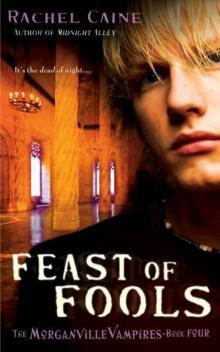 Feast of Fools tmv-4
Feast of Fools tmv-4 Ill Wind tww-1
Ill Wind tww-1 Devil's Due rld-2
Devil's Due rld-2 Black Dawn: The Morganville Vampires
Black Dawn: The Morganville Vampires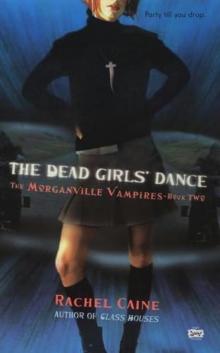 Dead Girls' Dance tmv-2
Dead Girls' Dance tmv-2 Minute Maids
Minute Maids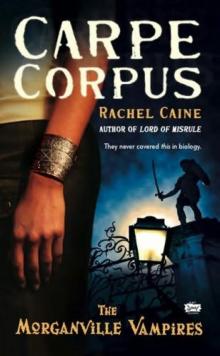 Carpe Corpus tmv-6
Carpe Corpus tmv-6 Total Eclipse tww-9
Total Eclipse tww-9 Ghost Town mv-9
Ghost Town mv-9 Lord of Misrule tmv-5
Lord of Misrule tmv-5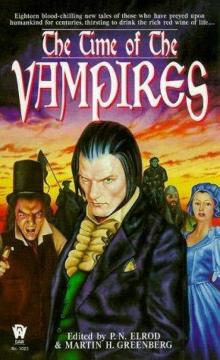 Faith Like Wine
Faith Like Wine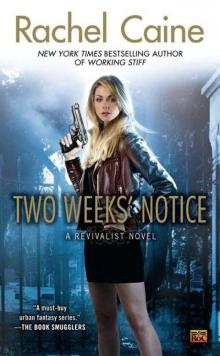 Two Weeks' Notice: A Revivalist Novel
Two Weeks' Notice: A Revivalist Novel Daylighters tmv-15
Daylighters tmv-15 Stamps, Vamps & Tramps (A Three Little Words Anthology)
Stamps, Vamps & Tramps (A Three Little Words Anthology) Unbroken os-4
Unbroken os-4 Unknown os-2
Unknown os-2 4 - Unbroken
4 - Unbroken Cape Storm tww-8
Cape Storm tww-8 Last Breath tmv-11
Last Breath tmv-11 Midnight Alley tmv-3
Midnight Alley tmv-3 Glass Houses tmv-1
Glass Houses tmv-1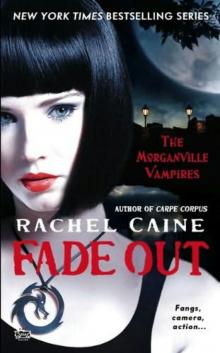 Fade Out tmv-7
Fade Out tmv-7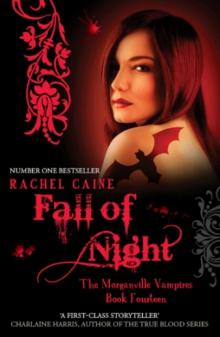 Fall of Night tmv-14
Fall of Night tmv-14 Godfellas
Godfellas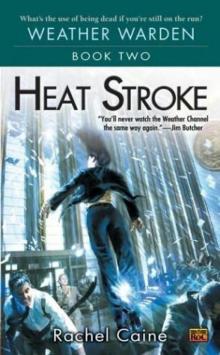 Heat Stroke ww-2
Heat Stroke ww-2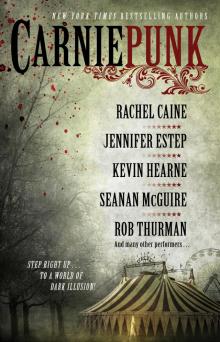 Carniepunk
Carniepunk Oasis ww-102
Oasis ww-102 Gale Force tww-7
Gale Force tww-7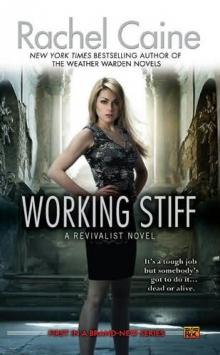 Working Stiff tr-1
Working Stiff tr-1